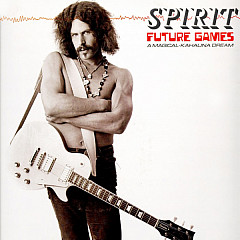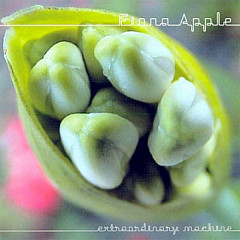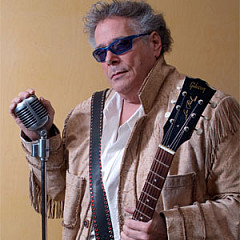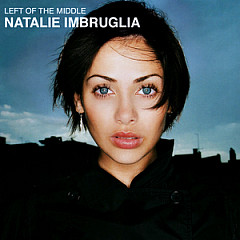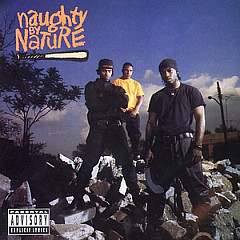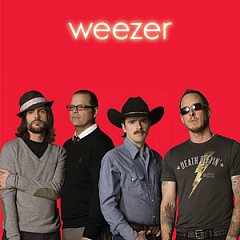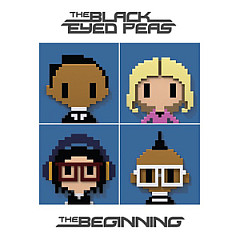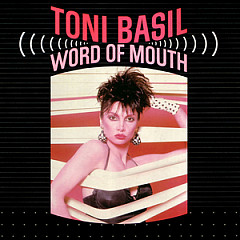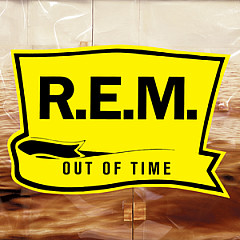The group has platinum and gold albums under their belt, with a recording career that began in 2000 with Infest. Radio hits like "Last Resort" keep the band in the public eye, and like their hyperactive singer, they show no signs of slowing down. We found out what fuels the band and what's behind some of their songs from their bass player Tobin Esperance, who is also a key songwriter in the group.
 Dan MacIntosh (Songfacts): How do you guys typically write songs?
Dan MacIntosh (Songfacts): How do you guys typically write songs?Tobin Esperance: Well, lots of different ways, really. There's not any certain set order or fashion that we write. But most of the time it starts out with music first. Sometimes it will just be a riff - a couple of chord changes with a melody in there. I'll show it to Jacoby, and Jacoby will be like, "God, that's cool, man. I'm really feeling that." And sometimes I'll make a whole demo on my laptop, just recording stuff so I'll have it on the road with me. I'll plug in and do it that way because then the whole song is already done, with drums, bass, and guitar. I've written songs on piano - actually, "Last Resort" with that whole little riff/melody thing, that's done on the piano. And then I just transferred it to the guitar.
Songfacts: So it's different every time?
Tobin: Yeah, it sure is.
Songfacts: "Last Resort," is a really important song for you guys. Can you tell me a little bit about what inspired it?
Tobin: Well, of course at the time we were listening to a lot of Wu Tang Clan, a lot of hip-hop, and a lot of Fugees and a lot of East Coast hip-hop, and we were sampling classical music behind simple pocket grooves. I was playing something on piano and Jacoby came in and started scatting over it. And we just did our typical mixing of a funky kind of hip-hop groove with a punk rock chorus. And that song just came together like that. Jacoby said, "That's a cool riff, keep playing that noodle" - we called it a noodle. We did it over and over again, and Jacoby put his lyrics to it, and the song just morphed into what it is now. No one ever thought it was going to be a huge, huge hit, but I guess you never expect anything, really, when you're first starting out.
Songfacts: Why do you think it became such a big hit?
Songfacts: A lot of your songs seem to come out of pain, like "Broken Home." Can you talk about where the inspiration for that song came from?
Tobin: That song started out as a real funky kind of groove - a heavy guitar thing. I was playing that at rehearsal, and it reminded me of Helmet; we were really into this band, Helmet, from the East Coast, and the riff kind of reminded us of one of their songs. I don't remember the exact song. We all just started jamming on it, and Jacoby chose lyrically to set the topic in divorce, which is something that everybody in the band has dealt with and kids all over deal with. It's another painful subject to bring up, but people just let loose when it came to that song.
Songfacts: Does it help you to deal with some of the pain by putting it in song? Is it cathartic for you?
Tobin: Yeah, in some ways it is, definitely. I think it's more so we hand it over to the listener. When you get older, you want to deal with things in a positive way and you want to move on. Sometimes it might be like, damn, this is so depressing to hear that song over and over (laughing) but that's why we always hand it over to the fans, like "This is for you." Take whatever you get from it and if it makes you want to scream and shout and get all your anger and aggression out, so be it.
Songfacts: When people come to see you, you don't want to bring them down, but at the same time, you express a lot of things that your fans might have trouble expressing, and even in the privacy of their room they can just sing some of your songs and it will help them.
Tobin: Absolutely. I think that's definitely the essence of Papa Roach. That's one thing that we definitely do well, and that's what fans love most about us. At the same time, we also have that other side that isn't super serious all the time. We like to have people dancing and laughing and just having a good time. We try to balance it out.
Songfacts: The song "Between Angels and Insects," was that inspired by the movie Fight Club?
Songfacts: How often does that happen where you get inspired by a movie and that becomes a song? Has that happened in other songs?
Tobin: Yeah. Lyrically, books and movies are two of the biggest influences aside from what's going on in the world.
Songfacts: Can you point to any examples of songs inspired by world events?
Tobin: Yeah. "Lifeline" is about the struggles that everyone was going through, like with the economy and everyone losing their jobs. There were a lot of homeless people in the area that we're from, and we were touching on that.
"Hollywood Whore" was a song about basically what was going on in the media, like Paris Hilton, TMZ, and how everyone was just obsessed with these people and you don't really know why. These are like role models for young people, you know what I mean? And it was out of disgust for it we wrote songs like "Hollywood Whore."
Songfacts: You talked about political things, and that reminded me of the song "Getting Away With Murder." Was there any particular greedy company that sparked that idea?
Tobin: That song had more of a darker, sexual kind of twisted meaning behind it. It was about being a sex fiend. And then instead of being so literal with the video, we took it in more of a political direction, and of course it just recently took on a lot of meaning when Casey Anthony got away with murder. I know some fans took that song and put a protest video behind it of that, so it kind of just took on a whole new meaning.
Songfacts: How cool is that? When fans put your song with that situation and it gave it a whole new meaning.
Tobin: Yeah. That's how a lot of our songs work out. Some of them can be really literal and you know exactly what the song's about. And sometimes we leave it wide open for everyone to just have their own interpretation of what the song means.
September 14, 2011
More Songwriter Interviews

